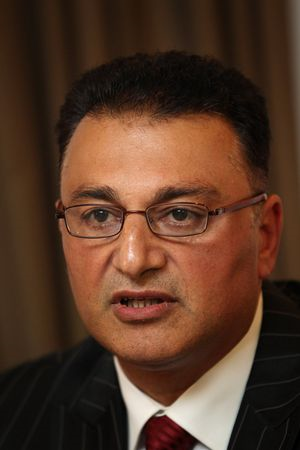Life in Brief: Unfinished police business
He's the Met officer whose career took a nosedive after he was jailed. But can he resurrect it? By Paul Peachey

Your support helps us to tell the story
As your White House correspondent, I ask the tough questions and seek the answers that matter.
Your support enables me to be in the room, pressing for transparency and accountability. Without your contributions, we wouldn't have the resources to challenge those in power.
Your donation makes it possible for us to keep doing this important work, keeping you informed every step of the way to the November election

Andrew Feinberg
White House Correspondent
Four days after he took on the toughest job in British policing, Metropolitan Police Commissioner Bernard Hogan-Howe has been confronted with a saga that encapsulates all the controversies of his new force's recent past. It includes allegations of corruption, racism, and phone hacking – all rolled into the controversial 25-year career of one burly, Iranian-born officer.
Ali Dizaei is the one-time senior Met Police officer who in 2010 was jailed, and sacked, after being convicted for corruption offences. On appeal, his conviction was quashed in May this year, and yesterday he won his claim to be reinstated to the force. But his employers are unlikely to be brushing down the mat for his return to Scotland Yard soon. Mr Dizaei still faces a retrial next year, and the Metropolitan Police Authority confirmed last night that he would be suspended on full pay. It marks another turbulent moment in the career of the man who has been the subject of investigations that have cost millions of pounds.
Ali Dizaei, 49, was born in Iran, where his father and other relatives served in the police. He moved to Britain in 1973 where he was privately educated, trained as a barrister and studied for a PhD in his spare time. After joining Thames Valley Police, the ambitious and confident policeman rose swiftly through the ranks until 13 years later he moved to the Met as a superintendent.
He joined in the same year, 1999, in which the Met was having to deal with the damning conclusions of the Macpherson report into the racist killing of Stephen Lawrence. Mr Dizaei became one of the Met's most outspoken critics about the way race issues were handled.
His rise stalled dramatically when he became the target of a corruption investigation over several years, which led to his suspension in 2001. They resulted in two criminal cases – one for perverting the course of justice after he lied about where he put his car when it was vandalised and for which he was cleared by a jury.
"I would not like this episode to be seen as a poor reflection on the Metropolitan Police Service nor the Crown Prosecution Service," he said at the time. "But rather, as an indictment on a number of individuals in those two organisations who have set out on a personal crusade to try to destroy my life and my career."
He was reinstated to the police force and received a pay-off, despite censure for making threatening phone calls to a former girlfriend. After the deal, the former commissioner Sir John Stevens told an audience that included Mr Dizaei that he admired him for admitting his mistakes, according to The Guardian. "It's a complete victory for me," the newspaper reported Mr Dizaei saying at the time. "A year ago, I was an alleged terrorist and now I'm back in uniform with my integrity intact."
But he admitted that he might suffer a backlash from his colleagues. The estrangement was made clear in a book about his ordeal that he co-wrote and published in 2007 – to the apparent anger of the force. The title, Not One of Us, spoke to his apparent outsider status, along with its racy story "told by the only man who knows the whole truth, of the rise and fall of the out-of-control coppers who tried to destroy him and how Dizaei refused to be beaten", according to the publisher's blurb.
He was now a commander but became a central figure in a further race saga that engulfed the Met in the summer of 2008. He gave strong backing to the highest-ranking Asian officer, Tarique Ghaffur, who made public accusations of racism against the force's leadership.
Mr Dizaei also faced other investigations, including by the Independent Police Complaints Commission over the alleged unauthorised use of a corporate credit card. After an investigation he was cleared.
Yet it was a clash in 2008 with a man who claimed that Mr Dizaei had not paid him for work on a personal website that led to a conviction and seemed to have permanently damaged his career. He was jailed for four years in 2010 after he was found guilty of trying to frame the designer.
Little more than a year later, he was free. An investigation by his wife into the background of the designer revealed that he was a benefits fraudster. Though the court of appeal ruled that he should face a retrial early next year and was accused of misconduct in a public office and perverting the course of justice, he vowed that he would clear his name and go back to the Met. Yesterday he made a similar pledge. "I am delighted to be reinstated. I have always wanted to be a Met Police officer and now vow to clear my name."
Whether he would be welcomed back by his colleagues is questionable. "We just want to see the back of him. Nobody wants him back," said one police source.
Subscribe to Independent Premium to bookmark this article
Want to bookmark your favourite articles and stories to read or reference later? Start your Independent Premium subscription today.
Join our commenting forum
Join thought-provoking conversations, follow other Independent readers and see their replies
Comments